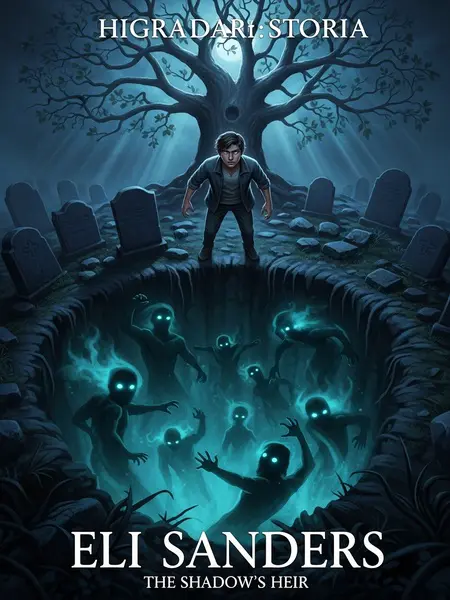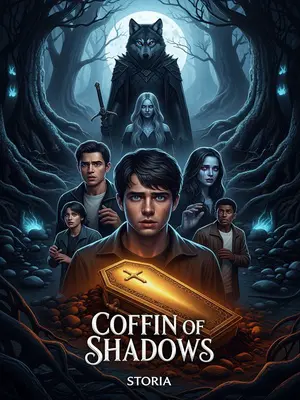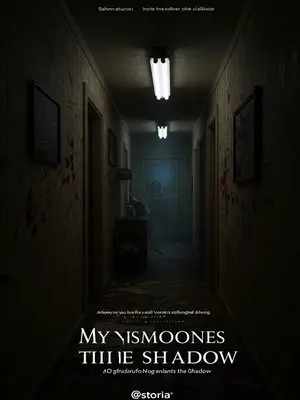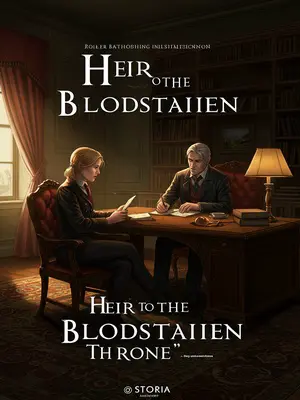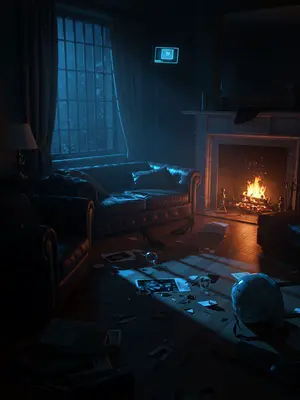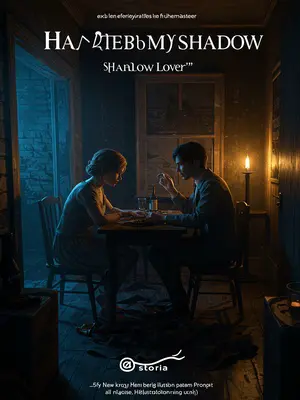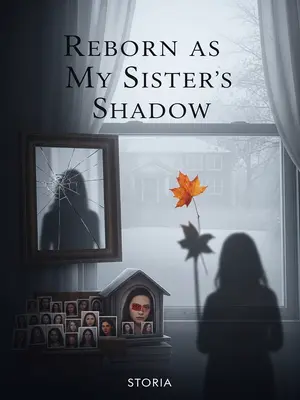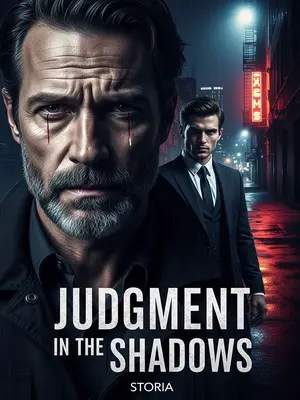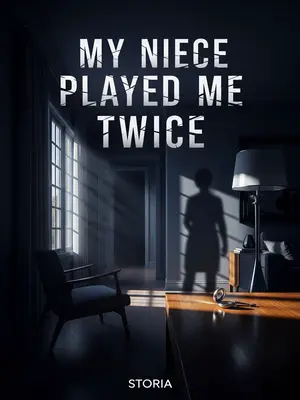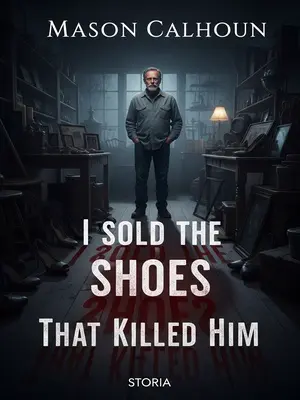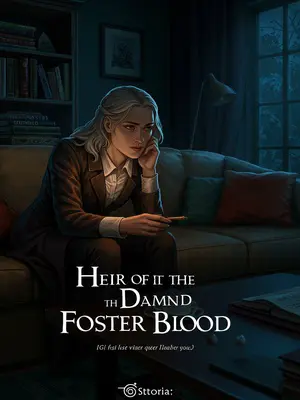Chapter 1: The Shadow Returns
My dad is what folks around here call a grave test sleeper—a job most people have never even heard of.
In our small Ohio town, grave test sleepers are the stuff of local legend. At the diner, folks swap stories about my dad over pancakes. Black coffee in hand, they argue about what my dad really does, but most still think he’s just a night watchman or something. Nobody really gets what he does—except maybe the old-timers, who eye him a little warily at the post office.
When wealthy families around here pick a burial site, they sometimes hire someone to spend the night in the grave, just to make sure there’s nothing weird about the place. That’s what my dad does, and he’s been at it for years.
It’s a weird tradition—half folklore, half superstition—but it’s real enough that the rich fork over real money. Sometimes, Dad gets called to old family plots on the edge of town, where the oaks hang low and the air smells damp, like something’s hiding just out of sight.
Until the last job. He came home with his skin mottled and purple, like a bruise that wouldn’t fade.
I remember the way he stumbled through the door, sunlight catching the screen door as he lurched in, looking like he’d just crawled out of a freezer. The sight of him made my stomach drop.
He wasn’t supposed to be home yet, so it threw me. Just the day before, he’d landed a huge commission. The client was the richest man in Maple Heights. Everyone called him Mr. Whitaker.
Around here, the Whitaker name carries weight. Their house sits on the highest hill, with marble lions at the gate and a driveway longer than most folks’ streets. My dad had been buzzing about this job for weeks.
Mr. Whitaker’s father had passed, and he was sparing no expense. He hired a renowned spiritualist to pick the perfect spot at the cemetery, then called in my dad to do the final test—spending three nights in the grave before the burial.
Even the funeral home director whispered about it to my mom at the grocery store—"They got Monroe and Sanders both? Must be some plot."
A grave test sleeper, in plain terms, is someone who checks if a grave is safe for the living. The idea is, if there’s bad energy—something lingering from the past, or a restless spirit—it’ll show itself to the sleeper. It’s dangerous work, not for the faint of heart.
It’s the kind of job you only hear about in local legends, or maybe in those late-night AM radio shows. Dad always said, being a grave sleeper was like being a lightning rod. You attract all the stuff nobody else wants to touch.
My dad used to say it’s like casting a line into a deep, dark lake to see what bites. Sometimes, what you reel in isn’t what you want.
He’d say that with a half-smile, fishing hat still on, as if talking about bass instead of the dead. I always rolled my eyes, but the way he said it—it stuck with me.
I never really believed him. People die, they’re gone—right? Even if you believe in ghosts, wouldn’t they have moved on by now? Besides, my dad had done this for years and nothing ever happened.
I chalked it up to stories—just something to spook me when I was little. The idea of restless spirits seemed as far away as Bigfoot or the Mothman.
So when he came back, I didn’t think much of it. I just handed him a glass of water. “Dad, did you forget something?”
He looked at me with tired eyes, the kind that made me pause. I figured he’d just lost track of time, maybe needed a break. I never guessed how wrong I was.
According to the rules, once he starts a job, he has to stay in the grave for three days. Afterward, the client buys him a brand new set of clothes—everything, right down to his socks. The folks who hire grave sleepers are always loaded, so the clothes are fancy. Every time my dad came home in a sharp new suit, I’d get a little jealous.
Once, he let me try on one of the jackets—a dark blue, custom-tailored, felt like it belonged on TV. For a moment, I imagined a life where I could wear things like that every day.
But today, he was still wearing that plain linen robe. He hadn’t finished the job.
The robe hung off him, wrinkled and dirty. Nothing like the crisp suits he usually brought back. It was the first time I realized something had gone truly wrong.
He didn’t say a word. Just stood in the doorway, clutching his chest, struggling to breathe.
His lips were blue, hands shaking. I dropped the glass, my heart pounding. The silence pressed in. It felt heavy—like the air before a tornado.
It was one in the afternoon, sun blazing. But my dad shivered like he was caught in a blizzard, staring at the floor.
I could see his breath, even though the kitchen was warm. He looked so small, wrapped in that robe, shadows flickering under his eyes.
“Son—”
His voice was thin, almost a whisper, like he was afraid to speak too loud. I froze, waiting for the rest.
He pointed down. “Look at my shadow.”
I followed his finger, expecting some kind of joke. What I saw made my skin crawl.
I looked, and my heart nearly stopped. The glass slipped from my hand and shattered on the tile.
The crash rang out, echoing in the silence. I barely noticed the water spreading across the floor.
The water spilled toward what looked like a half-shadow on the ground.
I blinked, thinking my eyes were playing tricks. But it was real—his shadow was split, like someone had sliced it with a knife.
That’s right—my dad’s shadow was split in half. Not top or bottom, but right down the middle. Only the right half remained.
It was the kind of thing you only see in nightmares. I stepped back, my heart hammering in my chest.
His face was pale as he gripped the doorframe. “Left is life, right is death. My life force is gone.” I tried to process what that meant—left for the living, right for the dead? My chest tightened. Was he saying he was halfway gone?
His words sent a chill through me. I’d never heard him talk like that—so certain, so final.
He pulled off his robe. Underneath, his belly was covered in huge, dark purple splotches.
The sight made me gag. My stomach turned. The bruises looked almost black, spider-webbing across his skin. I wanted to look away, but couldn’t.
“Dad, did someone hurt you?”
My voice shook. I reached for his arm, but he pulled away, pain etched deep in his eyes.
He gave a bitter smile. “I always told you to learn a trade, but you never listened. Maybe that’s on me—always thinking you had time.”
His voice was rough, regretful. I remembered all those nights he’d come home late, smelling of earth and incense, telling me to stay in school.
“Eli, what you see on me is livor mortis.” Livor mortis—he’d explained it once, the way blood pools after you die. “I might not make it.”
He said it like a doctor giving a diagnosis, but with a father’s fear behind the words. I swallowed hard, tears burning behind my eyes.
He closed the door, staggered to the couch, and lay down, telling me to grab the bank card from the drawer. He said he’d bought more insurance, invested in a fund—told me to remember everything.
I fumbled through the drawer, hands shaking. The bank card felt heavier than it should have. He spoke in short, clipped sentences, as if every word cost him something.
He sounded like a guy who knew he was running out of time. My eyes stung with tears.
The finality in his voice broke something in me. I wanted to scream, to tell him not to give up, but all I could do was nod and listen.
Seeing me cry, my dad sat up, scolding, “You’re almost grown—what are you crying for?”
He tried to sound tough, but his voice cracked. I wiped my eyes, embarrassed, but couldn’t stop the tears.
“Eli, hurry and pack. Go next door and have Uncle Rick drive us to the station.”
His words were urgent, desperate. Uncle Rick lived next door, always ready to help. I knew I had to move fast.
We only had two buses a day in our little town, and my dad had driven himself home. But now, he was in no shape to drive.
The next bus wasn’t till sundown. Out here, that’s how it is. I glanced at the clock, calculating how much time we had. Every second felt precious.
I nodded and went to call Uncle Rick. But as soon as I opened the door, a boot slammed into my chest.
The blow knocked the air out of me. I tumbled backward, head spinning. Pain shot through my ribs as I hit the floor.
I flew backward, hit the floor, my head spinning. Against the sunlight, a few men in black stormed in. At the back, a pale, sharply dressed man in a tailored suit followed.
The men moved with purpose. Faces cold, unreadable. The man in the suit looked like he’d just stepped off Wall Street—slick hair, silver cufflinks, the whole nine yards.
My dad’s face changed instantly. He rolled off the couch, dropped to his knees, and begged, “Mr. Whitaker, the kid’s just a boy, I—”
His voice was raw, pleading. I’d never seen him like this.
“That’s not how this works.”
Mr. Whitaker’s face was cold. His assistant handed over a contract.
The paper looked official—gold seal, thick cardstock, like something you’d get from a bank or a lawyer. My dad’s name was right there, in bold. No way out.
“It’s all here. Once you start, you don’t get to quit halfway. You ran off—no sense of commitment at all.”
His voice was icy, each word sharp as a knife. I could see why folks were scared of him.
“Mr. Sanders, is this how you handle things?”
Only then did I realize my dad had bailed without permission.
It hit me—he’d broken the rules, and now we were both in trouble. My stomach twisted.
My dad trembled, apologizing, offering to return double the money. Mr. Whitaker sneered, flicking his fingers.
The gesture was dismissive, like swatting away a fly. The men in black stepped closer.
“Just finding this spot cost me over a hundred grand for the spiritualist. What are you going to pay me with?”
His voice dripped with contempt. Money meant nothing to him, but pride did.
My dad knelt, begging, offering half. Mr. Whitaker wouldn’t budge.
The room felt colder. I wanted to scream, to fight, but all I could do was watch.
They dragged my dad and shoved us into a car.
